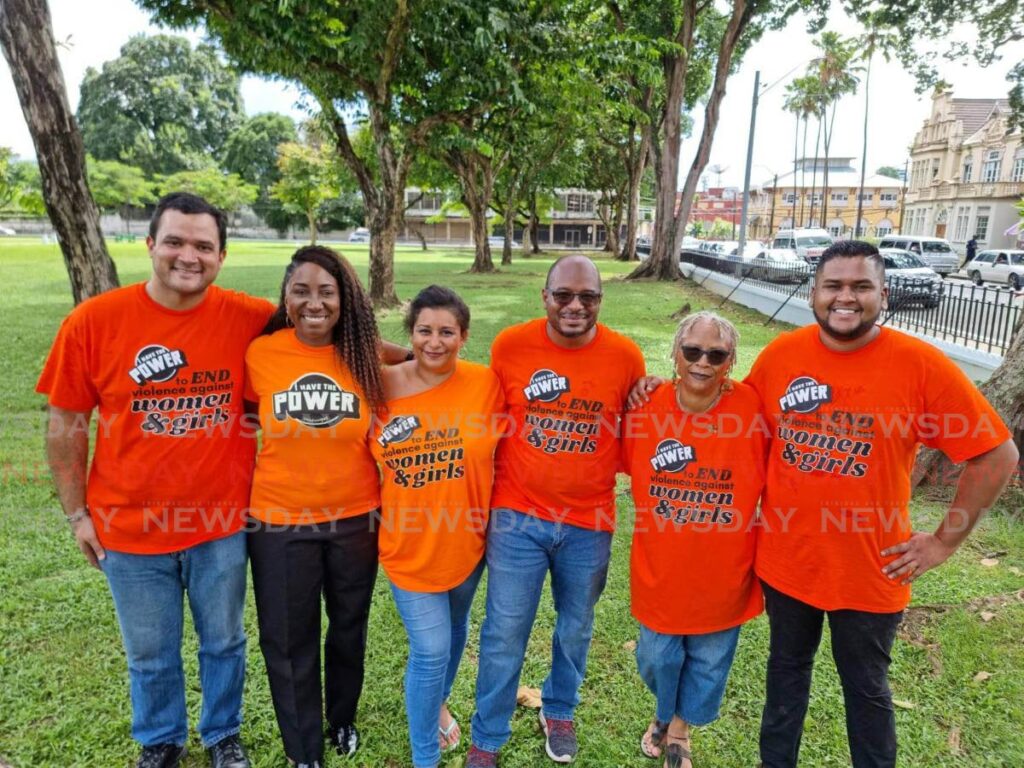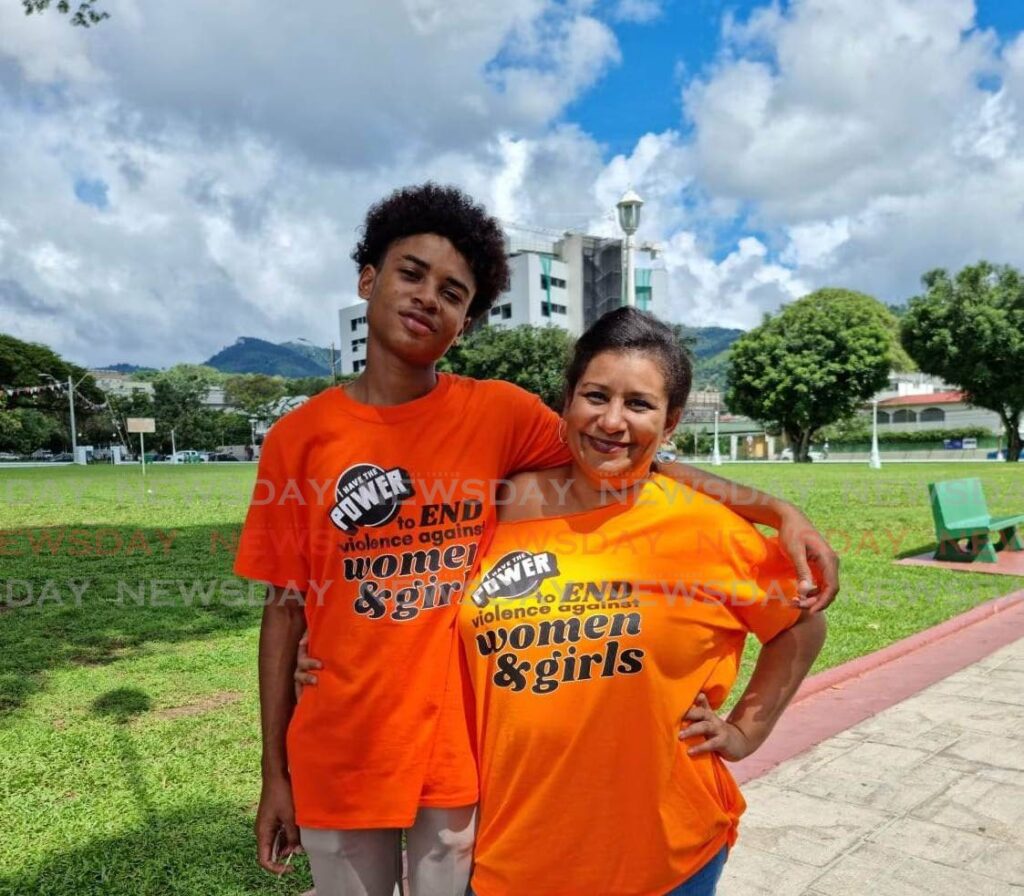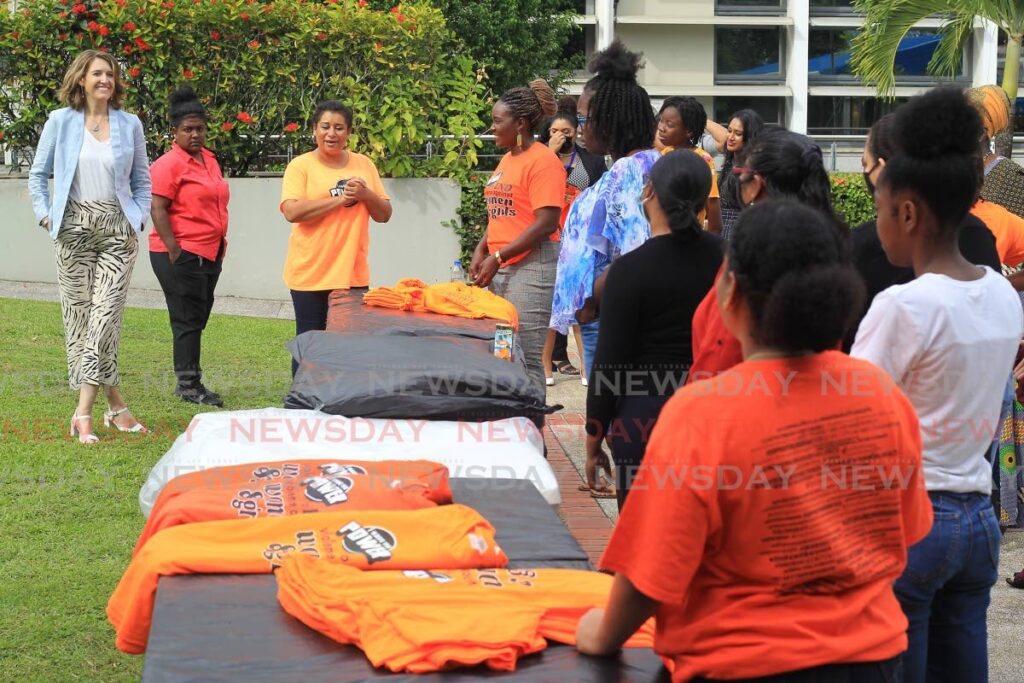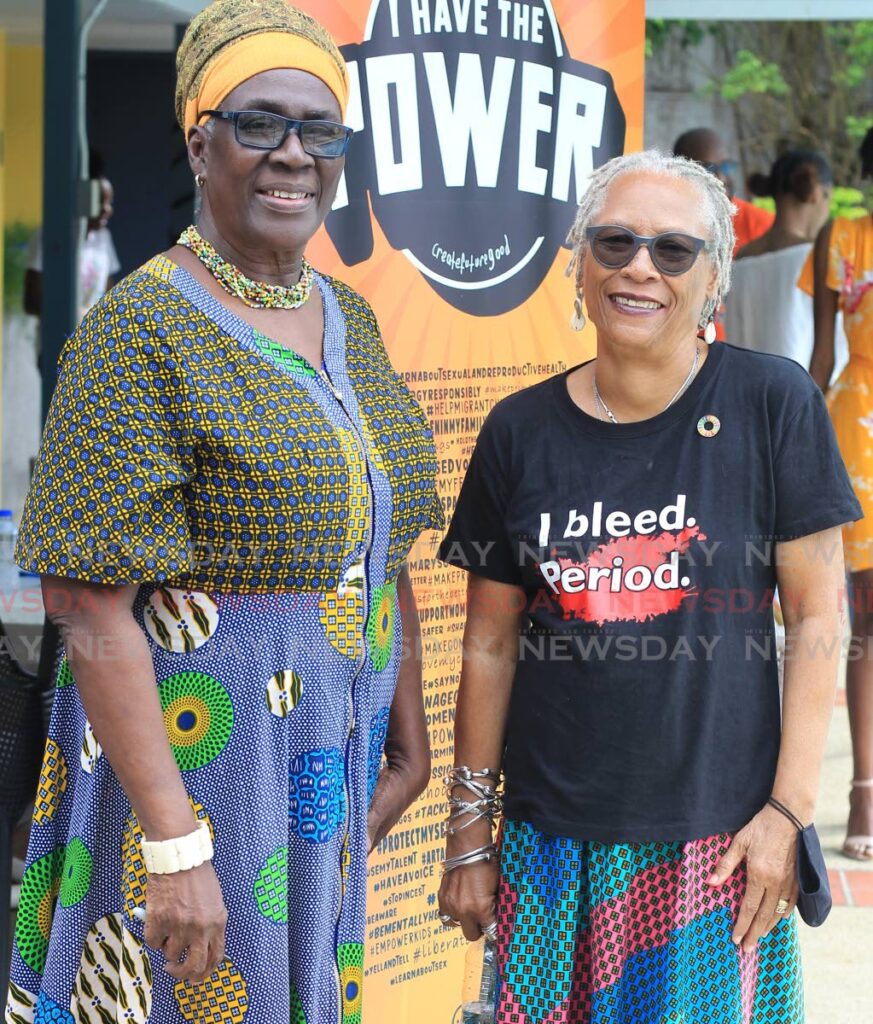Power to end violence: Caribbean Gender Alliance advocates for women, girls, boys

TT has its own part to play in its resistance and advocacy around gender issues and norms, and the newly formed Caribbean Gender Alliance (CGA) has started the ball rolling during this year’s 16 Days of Activism against Gender-Based Violence.
Started in 1991, 16 Days of Activism, which is supported by the UN, is an annual international campaign that begins on November 25 – the International Day for the Elimination of Violence against Women – and ends on Human Rights Day on December 10.
A UN Women press release said a new study by UN Office on Drugs and Crime and UN Women showed that, in 2021, more than five women or girls were killed every hour by someone in their own family.
In fact, 56 per cent of the women killed in 2021 (45,000 out of 81,000), were killed by intimate partners or other family members, showing that “home” was not a safe place for many women and girls. In comparison, 11 per cent of all male homicides were perpetrated in the private sphere.
“Even though these numbers are alarmingly high, the true scale of femicide may be much higher. Too many victims of femicide still go uncounted given inconsistencies in definitions and criteria amongst countries, for roughly four in ten women and girls killed intentionally in 2021, there is not enough information to identify them as femicide, especially for those killings happening in the public sphere.”
CGA chair Nadella Oya told WMN the organisation is not about creating a campaign that spoke about the number of women being killed, but about giving people practical tools to deal with issues.
The campaign includes 21 videos, info graphics, mentorship programmes, a march which took place on Friday, social media posts, art exhibitions, auctions, contests, and other discussions where people can learn about ways to advocate.

It addresses topics such as incest, mental health, student suspension, how to handle unwanted sexual advances, and non-violent techniques to address domestic violence in adulthood including self-regulation, conflict resolution, and de-escalating a situation.
And because men and boys can also be victims, there are videos in its Word of the Day series addressing the concept of masculinity and intimate-partner relationships.
Oya, who is also the founder and director of the children’s NGO create.future.good of “Good Touch, Bad Touch” fame, explained how CGA came to be.
She said before covid19, civil, business and other organisations, including create.future.good, were doing their own activities for 16 Days of Activism, so there was a glut of online activities in 2020.
“Because of our methodology, we always work with the people who are affected to figure out what the issues are that they are experiencing, what they think the solutions are, and how we could get to those solutions.”
The strength of create.future.good, she said, is media campaigning, communication, advocacy, education, and awareness around the issues.
So, in 2021, when create.future.good had a number of advertisements previously developed by young people, Oya talked to a few people who joined the organisation to back one campaign – I Have the Power.
It was not the usual approach of adults preaching to youths but dealt with issues parents probably would not talk to their children about proactively, and things they would not learn in school.
“The campaign doesn’t put it all on the government or the church. It’s about what you, as an individual, have the ability to do.”
At the end of 2021, 30 local entities – 20 civil-society organisations and ten businesses – had joined with create.future.good. Because each organisation had its own teams, networks, and audiences, the videos had greater circulation and audience penetration, making for a very successful campaign.
In August of this year, Oya was part of a UN Women retreat for civil-society organisations across the region, and 16 of the 24 organisations that participated decided to work together for 16 Days of Activism. The organisations were based in Jamaica, Bermuda, Suriname, Grenada, Guyana, Antigua and Barbuda, and TT.

“From the 16 in that room and the 30 from last year, it has now blossomed to 80 organisations across the region joining up for this campaign, and the Caribbean Gender Alliance was formed.
“The people that came together for this wanted it. We needed an umbrella organisation of entities who were working on ending violence against women and girls, gender issues, the women’s movement and that is the focus. But it will also cover other issues such as sexual and reproductive rights, HIV/STIs, women’s rights, LGBTQIA+, education reform, and other issues.”
She added that the group now includes research companies which are helping to gather data and measure the impact of the campaign – not just the CGA’s messages and activities, but those of any organisation or community.
She said once a post, video, ad, or anything regarding 16 Days of Activism is shared with the CGA, it will be promoted on CGA’s platforms including Facebook, Instagram, Twitter, and YouTube.
“If all of us talk about it at the same time, if all of us are agitating, it must touch somebody.”
Oya explained that this year’s campaign – I Have the Power to End Violence Against Women and Girls – is a continuation of last year’s. It will continue into 2023 with an extra “blitz” of videos for events such as International Women’s Day, Child Abuse Awareness Month in April, and Mother’s Day in May.
Oya believes that with awareness comes a change in thinking, then a change in attitude, and finally, a change in behaviour.
She gave several disturbing examples of attitudes that need to change in TT, including that of magistrates telling domestic-violence victims that their partners “only” threatened to beat them but did not actually hit them.
She told the story of a four-year-old girl who was sexually abused by a 16-year-old boy. The boy’s father beat the boy when he learned what he had done, which landed the child in the hospital. The police only found out about the abuse of the girl when investigating the boy's injuries. No one in the family had reported the abuse.
She recalled a time when a young child tried to take her own life. The panicked parents called Oya, who, in turn, called the police Child Protection Unit to intervene, as the child had barred the door so her family could not stop her.
The response of the female officer was that the child needed licks to “straighten her out.”
She also recalled reporting to the police that a “prophet” was grooming a girl online and tried to meet up with the underaged child. The officers told her she should “let sleeping dogs lie.”

“Are they waiting for the child’s body to be found fold up in a corner for them to then do something? These are the kinds of things we’re bringing awareness to.”
She said people need to be sensitised to issues, including sex and violence, because they are numb towards them, thanks to movies, video games,highly and unnecessarily sexualised ads and Carnival costumes that show as much skin as possible.
“It’s not just about educating children. Sometimes you have to start with the adults, because negative behaviour has been normalised for them. They don’t even know they’re doing something dangerous or damaging.
“But most adults want what is best for their children, so once you can get awareness and education that consent is a thing, and we could give people alternatives to expressing themselves, we get a shift in thinking that eventually becomes a shift in behaviour, when people no longer accept certain things.”
She added that to see a shift in culture, men and boys need to be engaged as much as women and girls. They need to understand that adults can engage in “sexy ways” without crossing personal boundaries. However, they must both declare and understand their boundaries and understand that consent is reversible.
If TT corrects its course, she said, people could live easier, more productive lives.


Comments
"Power to end violence: Caribbean Gender Alliance advocates for women, girls, boys"